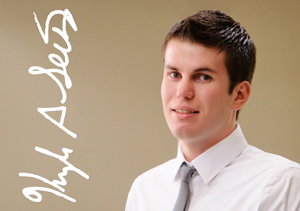 Call me odd, but I love riding the subway whenever I’m in New York City over break. Damp and chilly in the winter, suffocatingly smelly in the summer and always grungy, the subway doesn’t offer the most cheery atmosphere, but there are people down there — all types.
Call me odd, but I love riding the subway whenever I’m in New York City over break. Damp and chilly in the winter, suffocatingly smelly in the summer and always grungy, the subway doesn’t offer the most cheery atmosphere, but there are people down there — all types.
Tourists wander back and forth, squinting at cryptic signs, while residents purposefully march in and out as if synchronized with the train schedule. Some even live down there. And every single one of those individuals in that great mass means so much more than the mask he or she wears.
“A wonderful fact to reflect upon,” writes Charles Dickens in A Tale of Two Cities, “that every human creature is constituted to be that profound secret and mystery to every other.” You really notice that fact while riding in a subway car.
Across from you lolls a young guy wearing a baggy sweatsuit and headphones that effectually erase his whole environment from his consciousness. Next to him primly sits a young white-collar woman carrying a handbag worth more than everything you’re wearing.
They and everyone else in the car will always remain a “profound secret.” You don’t even know who’s next to you because you don’t dare risk the solecism of eye contact. You want to ask the little old Pakistani at the other end of the car what he’s clutching so carefully in his lap. You want to practice the second language you’re learning with the nearby group of teenagers speaking French, German, Hindi or Vietnamese.
But you can’t — at least not where I’m from. You can only remember that everyone around you experiences life just like you. On the other side of those impassive faces churn the same mix of hopes and doubts and needs behind your own. We need to remember that just because we can’t see another’s inner soul doesn’t mean it’s not there.
Someone who sits down next to you in class with a smile and hello might not necessarily be creepy. He or she might just need someone. Of course, anyone inappropriately inquisitive deserves the coldest of shoulders for the sake of your emotional or even physical safety. But don’t ignore genuine attempts at friendliness like I do. The other person may very well be nervously trying to just make one new friend.
Don’t turn up your nose at the admittedly pungent homeless man who sits down near you at the coffee shop like I did the other day. I have an education, a job, supportive parents and friends, and my faith. He probably had none of those blessings.
Just because I have everything and that poor Lazarus had nothing does not mean I have the right to edge away, to see only his outside appearance and forget the human starved for compassion. In a sense, he might even experience life more fully than I because he feels its cruel edge more keenly.
Don’t make snide remarks to your friends like I do about the questionable origins of another student’s coat. It might be his or her only one.
I should only speak for myself, but we all need to learn compassion, to value everyone around us — no matter who or what they are. I know I need to do that more.
So if you ever have the pleasure of spending a day navigating the mysterious world called the subway, realize what you’re seeing. Go ahead and amuse yourself with the variety of the masks riding in your subway car, but remember that each one hides a consciousness as rich and valuable and needy as your own.




















































